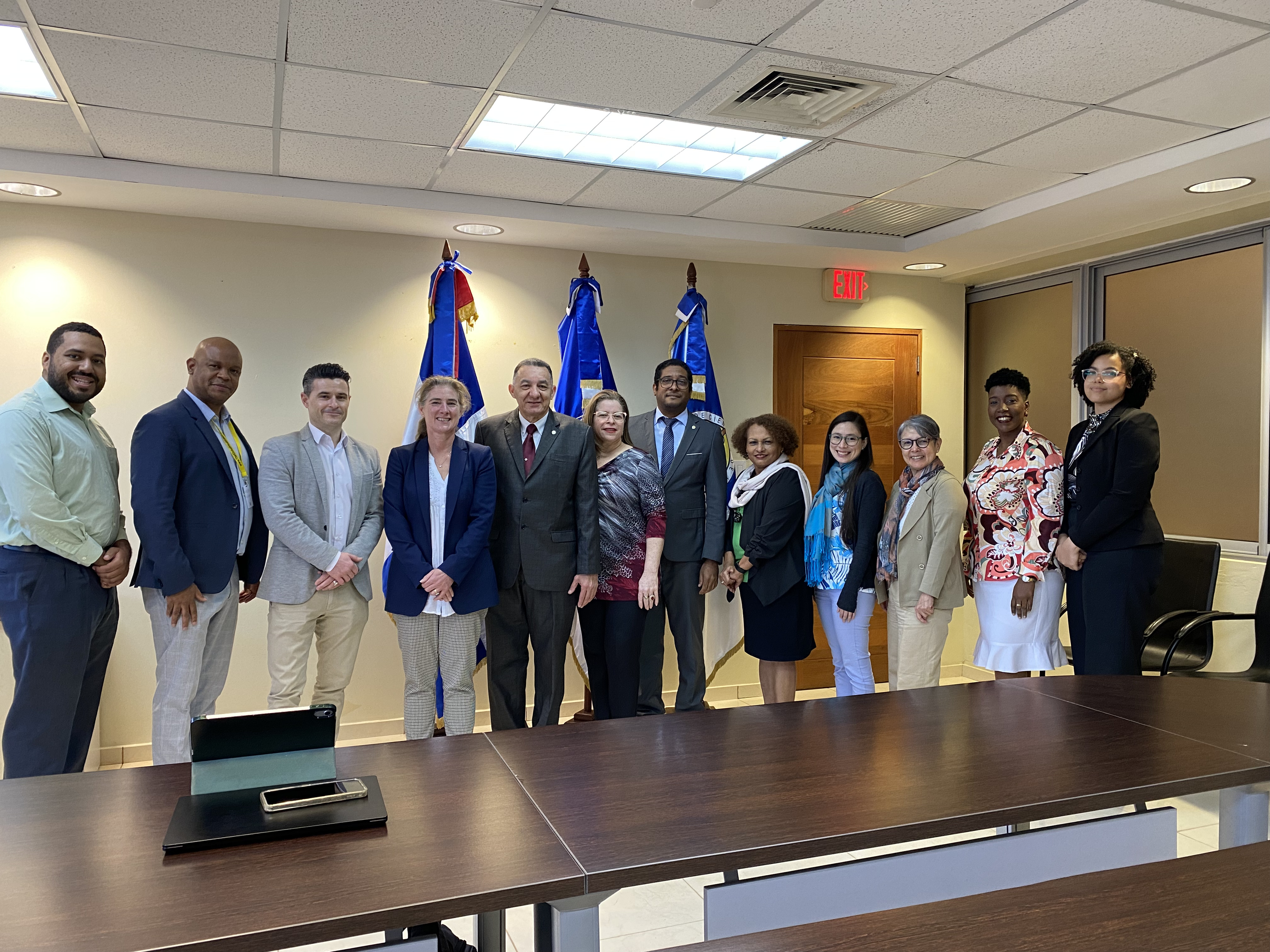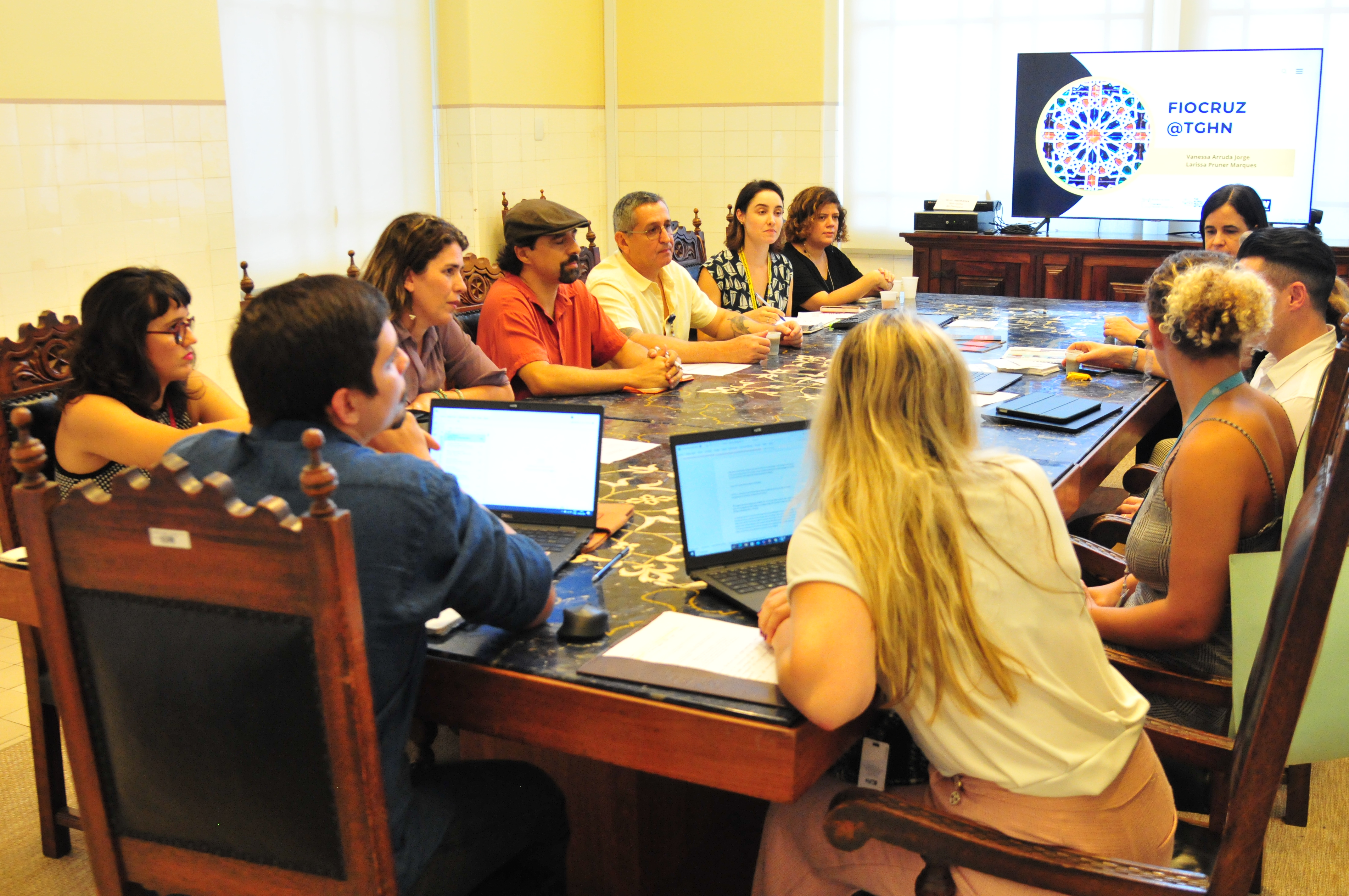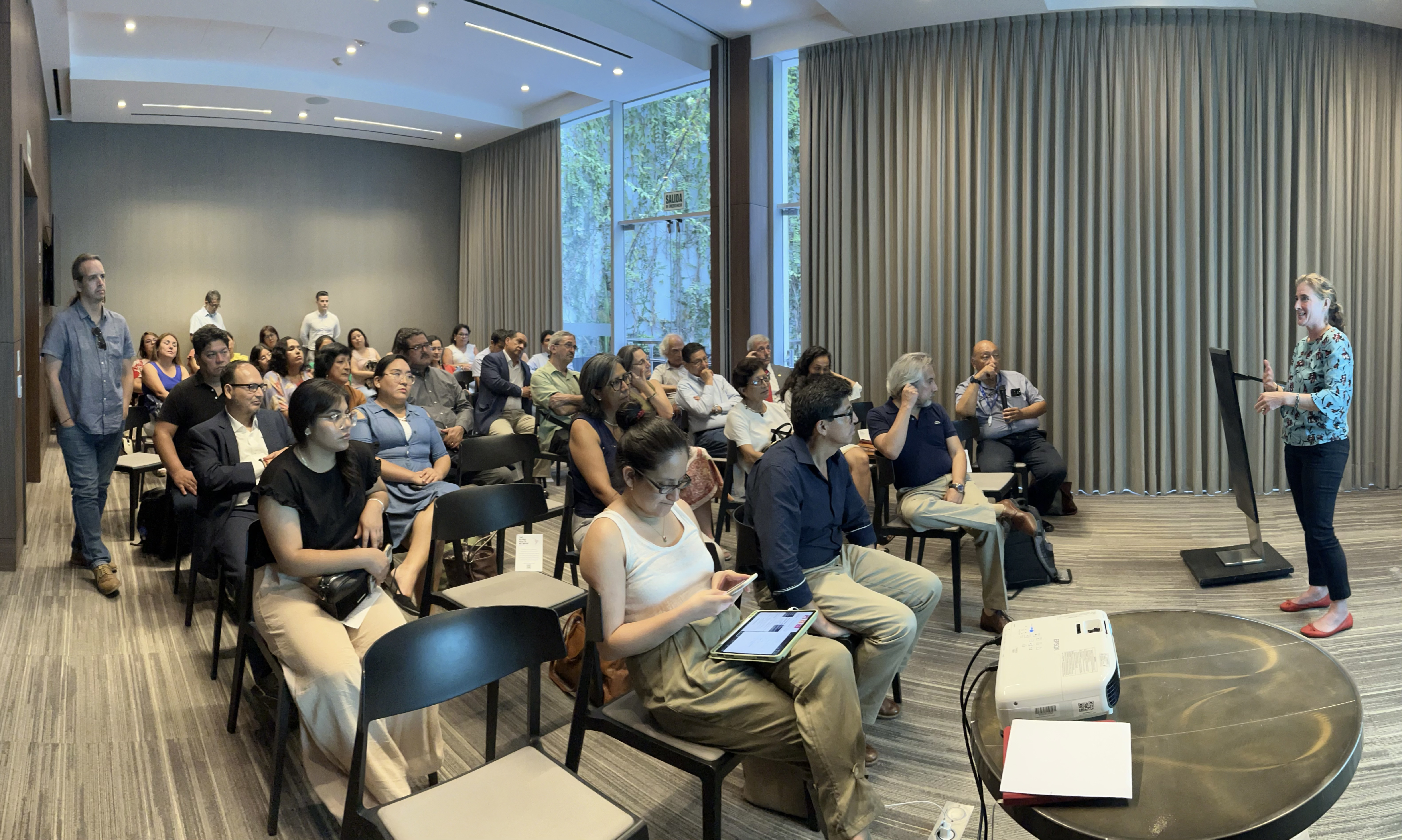The Global Health Network promotes collaboration in Latin America and the Caribbean with visits to Brazil, Peru and the Dominican Republic
In an effort to strengthen collaboration in health research in Latin America and the Caribbean, representatives of The Global Health Network (TGHN) made a series of visits to key institutions in Brazil, Peru and the Dominican Republic.
Brazil: The Global Health Network at Fiocruz
Credit: (Pedro Paulo Gonçalvez/Fiocruz)
On February 5, Fiocruz hosted The Global Health Network (TGHN) Director Trudie Lang and Senior Operations Manager Liam Boggs. During the meeting, the group di discussed collaboration between The Global Health Network of Latin America and the Caribbean (TGHN LAC), which is a consortium supported by the Wellcome Trust and several social institutions in the region. The agenda included meetings with the principal researcher of Fiocruz and vice president of Education, Information and Communication of Fiocruz, Cristiani Machado and the co-director researchers, Ernesto Caffarena and Marcelo Gomes, as well as a visit to the local Pathfinder Vacina Maré project.
Find out more about The Global Health Network's visit to Fiocruz
Peru: promoting and strengthening collaboration between teams
Credit: (Esther López/Equipo de Comunicación TGHN LAC)
From February 6 to 7, Trudie Lang and Liam Boggs visited Peru to strengthen collaboration at TGHN LAC. A work session was held with the entire Peruvian team at the Universidad Peruana Cayetano Heredia (UPCH) and even included the participation of members of the Colombian team, also invited to this session. The main researchers of the project in Peru and Colombia, Héctor H. García, from the UPCH and Lyda Osorio from the Universidad del Valle de Colombia were part of this meeting.
The visit culminated with the official presentation of The Global Health Network LAC to the Peruvian research community at the AC Hotel by Marriott where the UPCH team presented the network and the benefits of sharing knowledge to promote research in Latin America and the Caribbean.
Dominican Republic: promotion of Research

Credit: (Getzemaly Berbecia /Equipo de Comunicación TGHN LAC)
On February 9, the British partners made a series of visits to the Dominican Republic together with the principal investigator of the Dominican Republic, the president of the Etikos Foundation, Julio Canario, and that of Honduras, Jakeline Alger, executive director of the Institute of Infectious Diseases and Antonio Vidal parasitology. At the Dr. Robert Reid Cabral Children's Hospital, they discussed how to strengthen research in the health sector. At the Autonomous University of Santo Domingo, alliances were established to provide tools and information to health students. The Etikos Foundation was also visited, where details about the collaboration at TGHN were presented.
OFFICIAL PRESENTATION OF THE GLOBAL HEALTH NETWORK:
The day in the Dominican Republic culminated with the official presentation of The Global Health Network Latin America and the Caribbean at the Sheraton hotel. The benefits of the network were highlighted, the importance of knowledge exchange and the objectives of the "1000 Challenge" were detailed to democratize health research in the region.
THE 1000 CHALLENGE
In all the countries she has visited, Trudie Lang presented the “1000 Challenge”, which seeks to empower nurses, midwives and other health professionals to lead research to address the main problems in their communities. The "1000 Challenge" is an initiative that seeks to decentralize health research and make it more accessible to various professionals.
Learn more about the 1000 Challenge here
HEALTH IN LATIN AMERICA AND THE CARIBBEAN
These visits mark the beginning of strengthening collaboration in health research in Latin America and the Caribbean, promoting the participation of various institutions and health professionals. The initiative seeks not only to promote academic research, but also to empower local communities and health professionals in generating knowledge and solutions for specific health challenges in the region.
Written by Luisa Picanço, Esther López and Getzemaly Berbecia (Communication Team/ The Global Health Network Latin America and the Caribbean)


